Wissenschaftliche Literatur Renewable Energy
Eine Auswahl unserer Fachbücher
Falls bei Ihnen die Veröffentlichung der Dissertation, Habilitation oder Masterarbeit ansteht, kontaktieren Sie uns jederzeit gern.
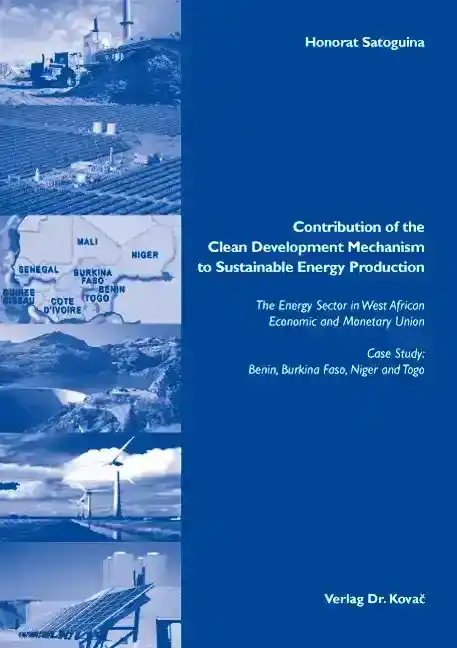 Zum Shop
Zum ShopHonorat Satoguina
Contribution of the Clean Development Mechanism to Sustainable Energy Production
The Energy Sector in the West African Economic and Monetary Union - Case Study: Benin, Burkina Faso, Niger and Togo
Wirtschaftspolitik in Forschung und Praxis
The Kyoto Protocol encompasses flexible mechanisms, which allow the use of the world’s cheapest possibilities for emission reductions. The Clean Development Mechanism (CDM), which allows for the generation of emissions credits through emission reduction projects, is the only mechanism that involves developing countries in the global climate change mitigation efforts. Its aim is to contribute to sustainable development (SD) in the host countries. [...]
BeninBurkina FasoClean Development Mechanism CDMDesignated National Authority DANNEnergy DemandEnergy PolicyEnergy SupplyKyoto ProtocolLDCsLeast developing countriesNigerRegional CDM Approval BodySustainable DevelopmentSustainable EnergyTogoVolkswirtschaftslehreWAEMUWest AfricaWest African Economic and Monetary UnionWestafrika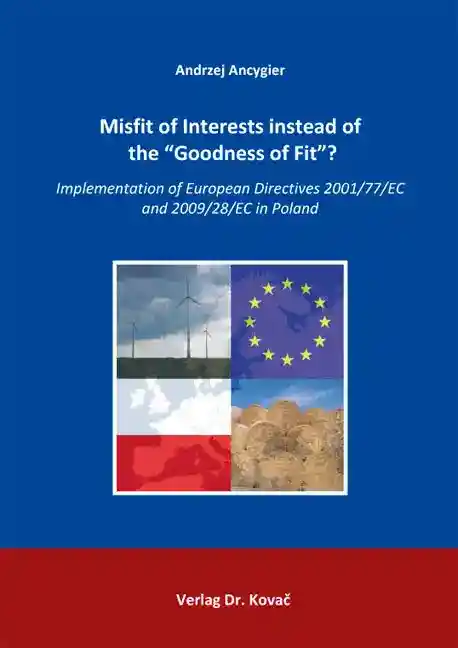 Zum Shop
Zum ShopAndrzej Ancygier
Misfit of Interests instead of the “Goodness of Fit”?
Implementation of European Directives 2001/77/EC and 2009/28/EC in Poland
This book analyzes the implementation of the European renewableenergy directives 2001/77/EC and 2009/28/EC in Poland. By providing a thorough analysis of the process of adoption of each of these directives in Brussels and its subsequent implementation in Poland, it explains the reasons for the lacking or delayed implementation of the European laws in the member countries. The discrepancy between the interests of the actors participating in the policy making process at…
Channels of InfluenceDirective 2001/77/ECDirective 2009/28/ECDiscrepancy of InterestsEuropean Energy PolicyEuropean IntegrationEuropeanizationEuropean LawsPolish Energy PolicyRenewable Energy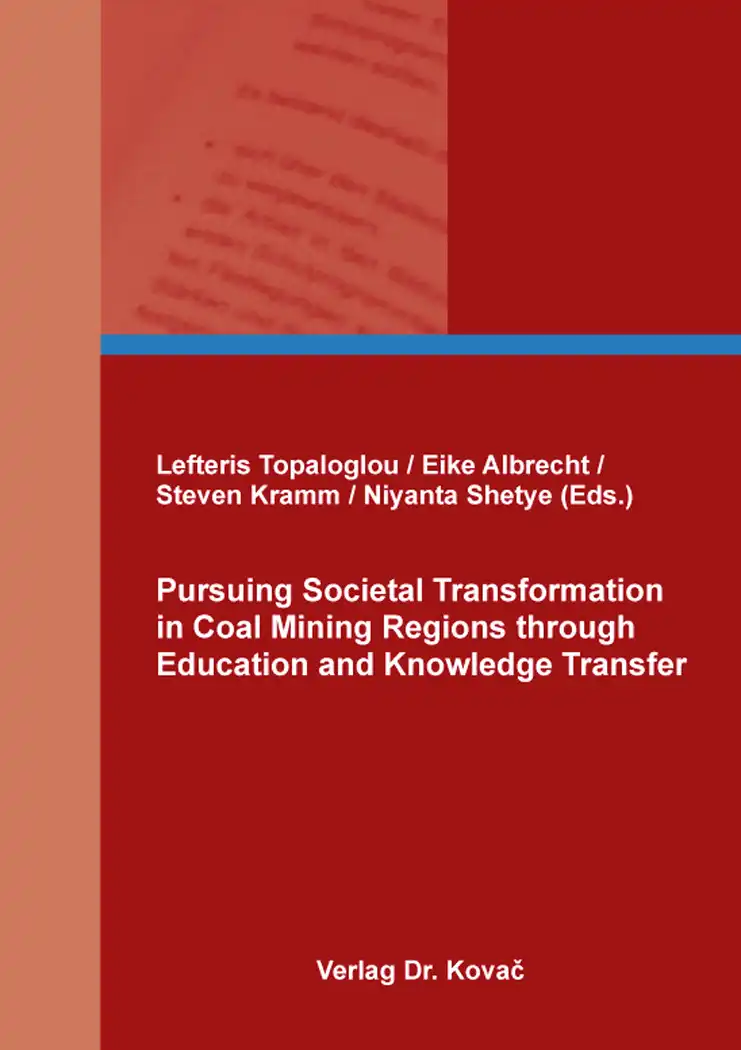 Zum Shop
Zum ShopLefteris Topaloglou / Eike Albrecht / Steven Kramm / Niyanta Shetye (Ed.)
Pursuing Societal Transformation in Coal Mining Regions through Education and Knowledge Transfer
Umweltrecht in Forschung und Praxis
This volume is the outcome of a scientific workshop on Pursuing Societal Transformation through Education and Knowledge Transfer in Kozani. The workshop was carried out in December 2022 in the framework of a cooperation project financed by the German Academic Exchange Service (DAAD). The project brought together Brandenburg University of Cottbus – Senftenberg (BTU), Germany, and the University of Western Macedonia (UOWM), Kozani, northern Greece. [...]
EnergiewendeGerechter ÜbergangJust TransitionKohleKohleausstiegÖkologische WendeRegionalstudienStruktureller WandelUmweltrecht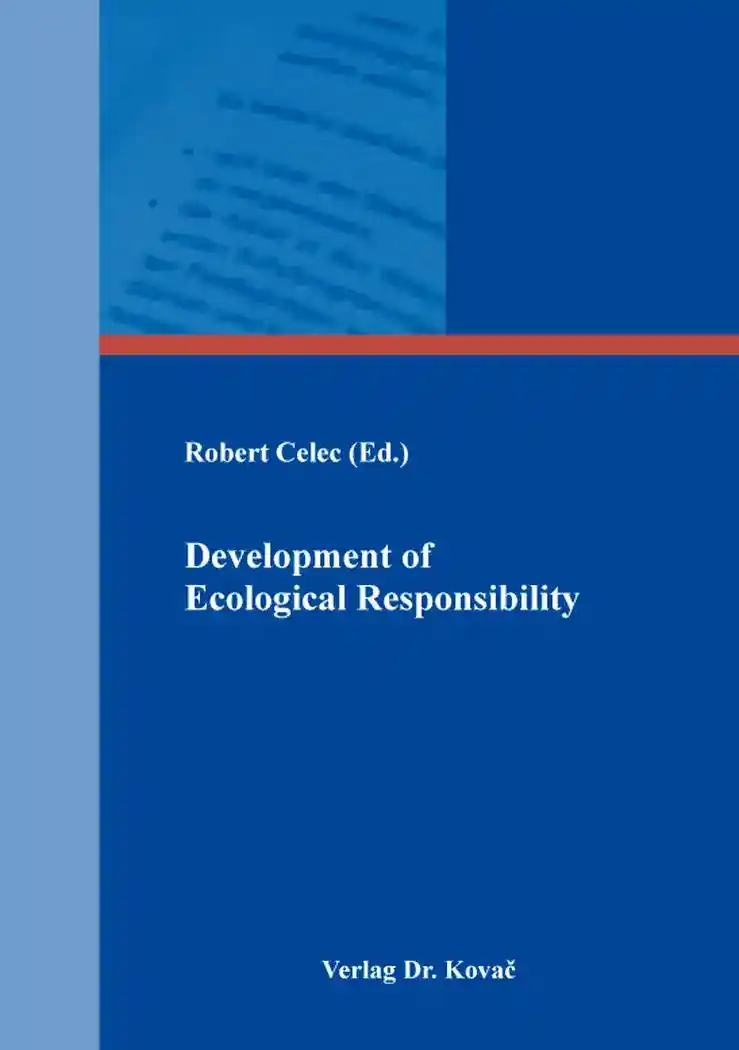 Zum Shop
Zum ShopRobert Celec (Ed.)
Development of Ecological Responsibility
EUB. Erziehung – Unterricht – Bildung
Sustainable development is defined as development that satisfies the needs of the present without compromising the ability of future generations to satisfy theirs. The book starts from the aim of sustainable development which is to define viable schemes combining the economic, social, and environmental aspects of human activity. These three areas must therefore be taken into consideration by communities, companies, and individuals. [...]
Climate ChangesCross-Curricular IntegrationEco-ArtEcological EducationEcological ThinkingEcologyEducationEnvironmental ProtectionRenewable Energy SourcesResponsibilitySustainabilitySustainable Development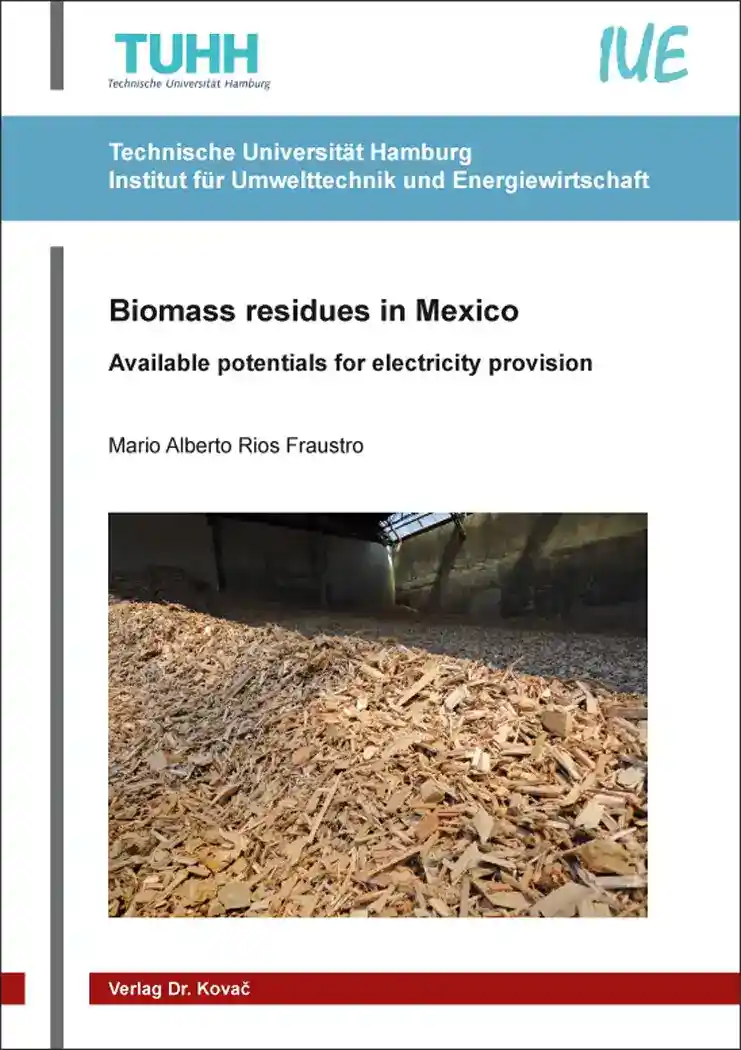 Zum Shop
Zum ShopMario Alberto Rios Fraustro
Biomass residues in Mexico
Available potentials for electricity provision
Schriftenreihe technische Forschungsergebnisse
Among the various renewableenergy sources currently available, the use of biomass residues for energy generation has proven to be an excellent sustainable alternative, since it can solve two problems at once
1) Treating non-recyclable and non-reusable waste streams,
2) Providing non-intermittent energy in a sustainable way. Biomass residues can be defined as any left organic matter derived from plants or animals on a renewable basis. [...]
AssessmentBewertungBioenergieBioenergyBiogasBiomassBiomasseEconomic PotentialElectricity from Biomass ResiduesEnergiesystemeEnergiewirtschaftFeste BiomasseMexicoMexikoÖkonomisches PotenzialPotentialPotenzialResidues and WasteRest- und AbfallstoffeScenariosSolid BiomassStrom aus Biomasse-ReststoffenSzenarienTechnical PotentialTechnisches Potenzial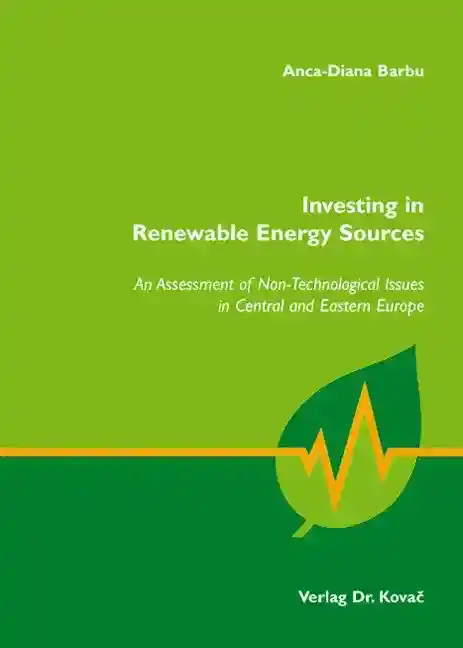 Zum Shop
Zum ShopAnca-Diana Barbu
Investing in RenewableEnergy Sources
An Assessment of Non-Technological Issues in Central and Eastern Europe
Wirtschaftspolitik in Forschung und Praxis
On May 1st 2004, the European Union has seen the most ambitious enlargement in its history in terms of expansion scale as well as political and economic challenges. With the accession process, the new Member States (NMS) assumed a double responsibility. On one hand, these countries will have to continue making efforts to catch up with Western Europe (EU-15) while, at the same time, taking on-board new responsibilities as fully fledged Members of the European Union. The…
EnergieversorgungErneuerbare EnergienGlobalisierungKlimawandelNachhaltigkeitOsteuropaProperty RightsSustainabilityVolkswirtschaftslehreWeltklimaWirtschaftspolitik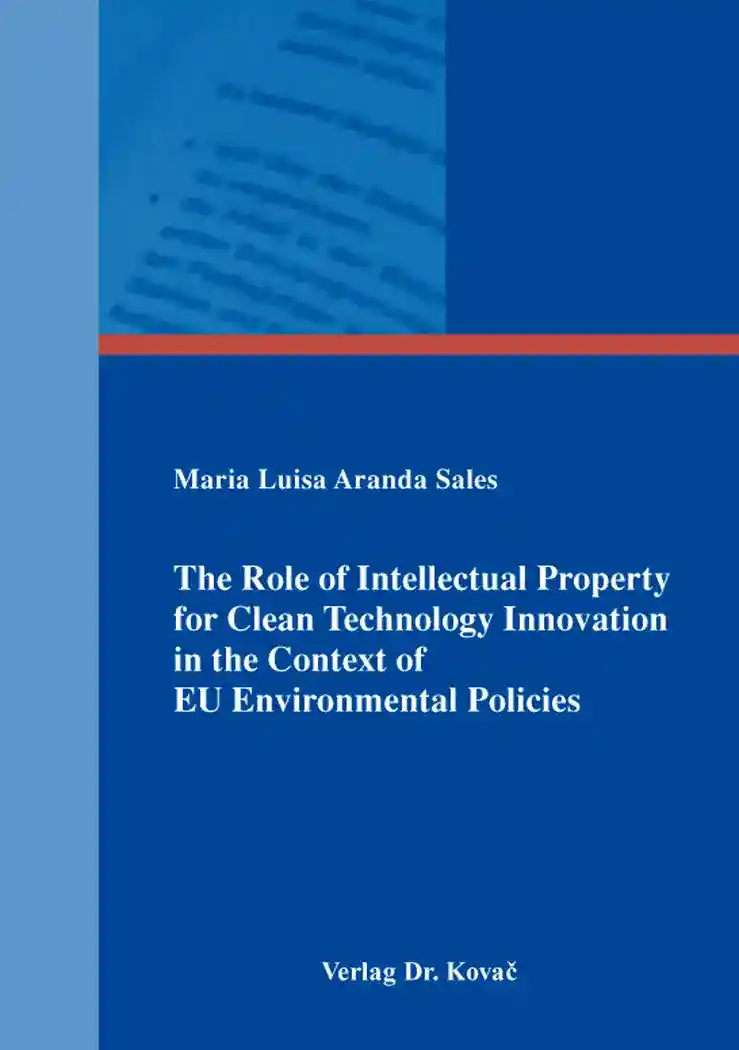 Zum Shop
Zum ShopMaria Luisa Aranda Sales
The Role of Intellectual Property for Clean Technology Innovation in the Context of EU Environmental Policies
Studien zum Gewerblichen Rechtsschutz und zum Urheberrecht
This book revises the role of IP law, in the context of EU environmental protection, with a view to promote clean energy technologies. Specifically, the project carries out three main lines of analysis. First, from the perspective of EU primary law, it analyses the implications, if any, of the principle of environmental integration for IP law (particularly, patent law). Second, it examines the role that IP law § on its own and in combination with other elements § may play…
Clean TechnologyClean Technology InnovationClimate ChangeEnvironmental IntegrationEUEuropean LawHorizon 2020Intellectual PropertyIntellectual Property LawIPPatentPPPPublic Private PartnershipRenewable Energy